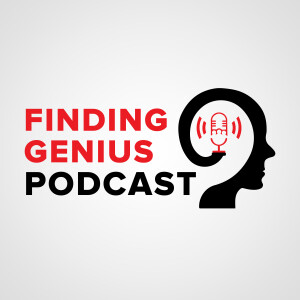
Transplanting Insulin-Producing Cells: Type 1 Diabetes Therapies & Cure with Juan Domínguez-Bendala
 2020-12-16
2020-12-16
It's hard to mimic the pancreas, despite the stellar treatment technology available to type 1 diabetics. Researchers like Juan Domínguez-Bendala are working hard on a cure for type 1 diabetes pathogenesis and, simultaneously, for even more hands-off treatment options.
Listen and learn
- What various avenues toward beta cell repair and transplants researchers are working on,
- How these approaches work alongside existing pancreatic cells and islet function by introducing new beta cells and insulin production, and
- How soon the transplant technology will be available for clinical use and what challenges to a cure still exist.
Juan Domínguez-Bendala is Director of Stem Cell Development Research and an associate professor of surgery at the Diabetes Research Institute at the University of Miami's Miller School of Medicine.
The primary goal of his researcher is to cure type 1 diabetes, and he addresses these efforts as well as exciting steps forward in a transplant therapy. The auto-immune cause of the disease means a cure must address two issues: immune modulation and regeneration of beta cells, which produce insulin. Therefore, advanced therapies also must address these two issues, but in a less permanent way. He describes some roads different researchers have taken to get as close as possible to curative hypotheses and how the therapies takes advantage of those findings.
Unlike beta cells in type 2 diabetes, type 1 patients have had their beta cells attacked and killed by their immune system. His lab is using induced pluripotent stems cells, where they are taken from skin, reprogrammed to go back in time, and then redifferentiated into, in this case, beta cells. They then put these cells into a protective case about the size of a credit card and implant just below the skin. Patients would ideally only need to return every 6 months for a new implantation.
They are also working on a way to induce cell growth inside a patient's body by introducing a medicine that would cause beta cell regeneration naturally. They've identified a protein in our blood that makes beta stem cells proliferate, giving rise to new beta cells. Listen in for exciting leaps ahead for better type 1 diabetes treatment and the careful approach toward a final cure.
For more, see the Diabetes Research Institute.
Available on Apple Podcasts: apple.co/2Os0myK
More Episodes
 2024-04-09
2024-04-09
 2024-03-30
2024-03-30
Create your
podcast in
minutes
- Full-featured podcast site
- Unlimited storage and bandwidth
- Comprehensive podcast stats
- Distribute to Apple Podcasts, Spotify, and more
- Make money with your podcast
It is Free
- Privacy Policy
- Cookie Policy
- Terms of Use
- Consent Preferences
- Copyright © 2015-2024 Podbean.com





